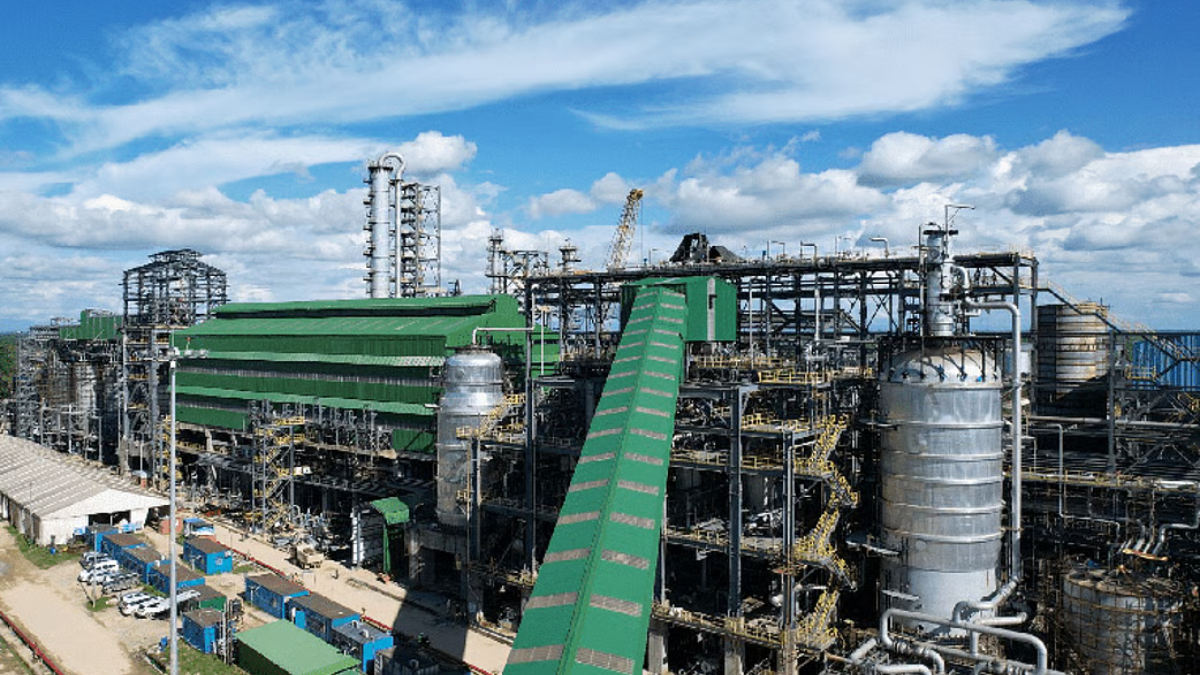India took a major step toward clean energy and sustainable growth with the launch of its first bamboo-based ethanol plant in Golaghat district, Assam, in September 2025. Inaugurated by Prime Minister Narendra Modi, this facility is an innovative example of how renewable resources can be turned into fuel while boosting rural livelihoods.
India’s First Bamboo Based Ethanol Plant
India’s first bamboo based ethanol plant in Assam is more than just an industrial project; it’s a symbol of ecological responsibility and economic progress. Managed by Assam Bio Ethanol Private Limited (ABEPL), a joint venture of Numaligarh Refinery Ltd, Chempolis (Finland), and global partners, the plant is designed to process 300,000–500,000 tons of bamboo annually and generate 50,000 tons of fuel-grade ethanol, along with several high-value byproducts.
Do you know? Assam is often called the “Bamboo State” because it has one of the highest bamboo reserves in India, supporting lakhs of tribal and rural families.
Technological Innovation & National Goals from Bamboo Based Ethanol Plant
This plant represents a landmark achievement in green manufacturing and energy self-reliance.
- It operates as a zero-waste facility, powered by a 25 MW captive power unit.
- Uses advanced fractionation technology to convert bamboo into ethanol of over 99% purity.
- Aligns with the government’s Ethanol Blending Program (E20), which aims to blend 20% ethanol with petrol.
- Contributes to India’s Net Zero carbon target by 2070, reducing dependency on crude oil imports.
- This combination of innovation and sustainability sets a new benchmark for biofuel plants in India.
Fun Fact: India changed the Indian Forest Act, 1927 to no longer treat bamboo as a tree. Now, anyone can harvest and sell bamboo like a crop, helping Assam’s farmers earn more money.
Bamboo Based Ethanol Plant’s Local and National Impact
The ethanol plant has direct and indirect benefits for Assam and the broader Northeast region.
- Economic Upliftment: Over 30,000-50,000 local families connected to bamboo farming will benefit.
- Livelihoods: Provides farmers with stable income, job opportunities, and training.
- Policy Support: Relaxation of old restrictions on bamboo harvesting has empowered tribal and rural communities.
- Foreign Investment: Attracts global partners, strengthening India’s standing in green energy diplomacy.
- This project not only drives local growth but also integrates the Northeast into India’s clean energy roadmap.
Interesting Fact: The bamboo-based ethanol plant is the world’s first zero-waste facility producing ethanol only from green bamboo.
Byproducts and Additional Benefits of Bamboo Based Ethanol Plant
The bamboo ethanol plant functions as a biorefinery, generating multiple outputs besides ethanol.
Acetic Acid: Used in chemicals, textiles, and food industries.
Furfural: Important for solvents, resins, and bio-based materials.
Bio-coal & Green Energy: Replace conventional fuels with renewable options.
Food-grade CO₂: Useful for beverages and industrial applications.
By ensuring that every part of the bamboo is used, the plant sets zero-waste standards and diversifies India’s industrial output.
Relevance for Government Exams
For aspirants preparing for UPSC, State PCS, and Banking/Insurance exams, this development is highly important. It links multiple areas:
Science & Technology: Fractionation technology, bio-refineries.
Environment: Renewable fuels, Net Zero targets, E20 program.
Economy: Rural livelihoods, foreign investment, and the bamboo economy.
Current Affairs: India’s first bamboo-based ethanol plant is a milestone in sustainable growth.
Note: This project demonstrates how local resources and innovation can support Atmanirbhar Bharat and global climate commitments simultaneously.
Do you know? Bamboo grows back rapidly after harvest, making it one of the best eco-friendly raw materials for sustainable energy production.
| Also Read |
| Emmy Awards 2025 |




 GA Questions Asked In Nainital Bank Cler...
GA Questions Asked In Nainital Bank Cler...
 GA Questions Asked in NABARD Grade A 202...
GA Questions Asked in NABARD Grade A 202...
 Important Schemes for IBPS Clerk Mains 2...
Important Schemes for IBPS Clerk Mains 2...









